Vote Leave's targeted Brexit ads released by Facebook
- Published
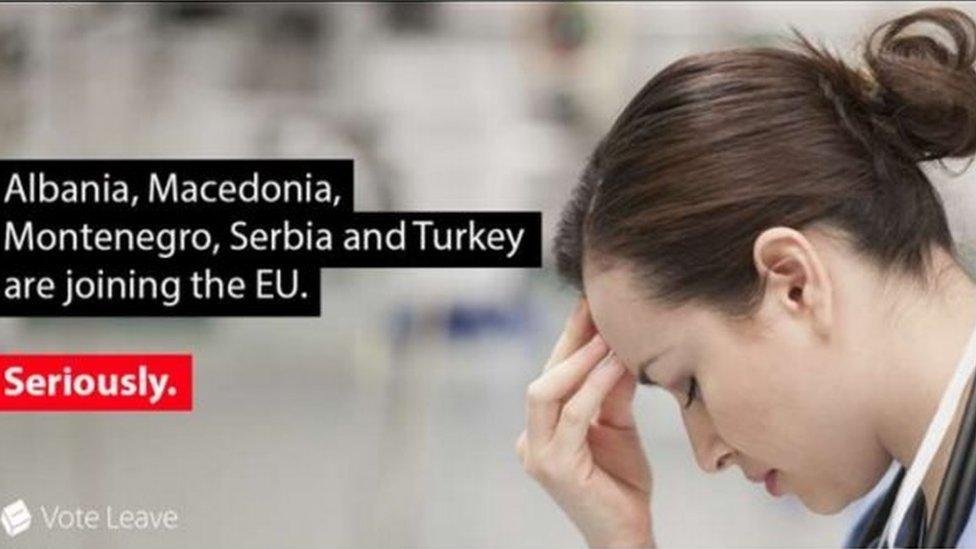
The official Vote Leave campaign spent more than £2.7m on targeting ads at specific groups of people on Facebook - helping it to win the 2016 EU referendum.
The US social media giant has now released these ads to a committee of MPs investigating fake news - meaning everyone, not just those they were originally aimed at, can now see them.
The ads, created by Canadian company Aggregate AIQ, often focused on specific issues - such as immigration or animal rights - thought likely to push the buttons of certain groups of people, based on their age, where they lived and other personal data taken from social media and other sources.
The 120 pages of documents appear to back up the findings of the Electoral Commission, which ruled last week that Vote Leave broke electoral law by working jointly with another campaign, BeLeave - something denied by both groups.
A number of BeLeave ads were sent from the Vote Leave Facebook account, including this one:
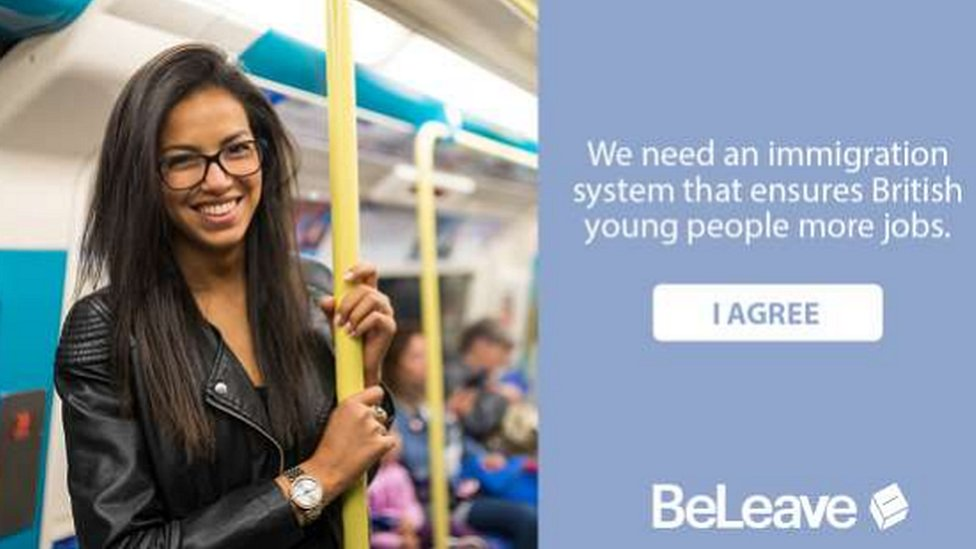
There are 1,433 different messages in the data set released by Facebook, all with one common theme - although it is not always clear that they have come from a pro-Brexit campaign.
Here is one that was targeted at animal lovers:
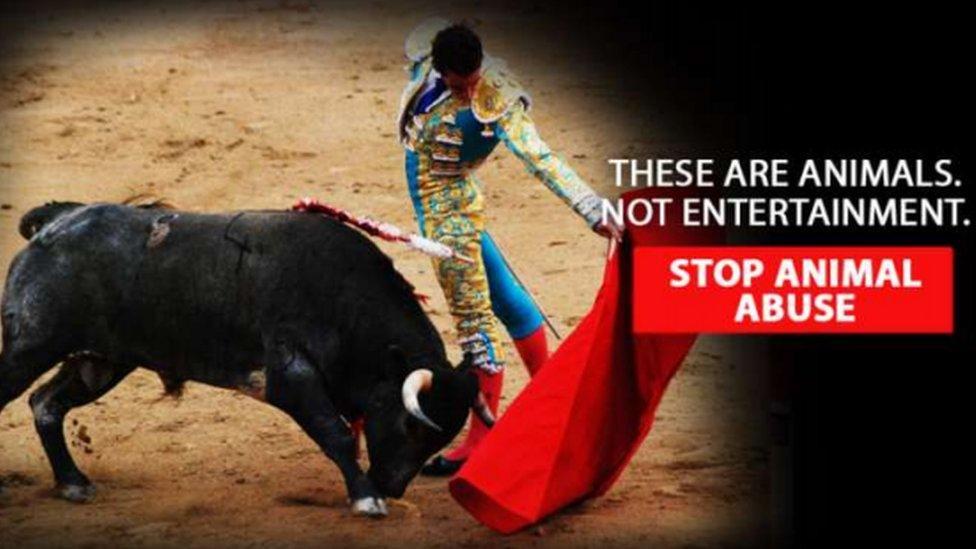
This one, targeted at tea-lovers, is more obviously pro-Brexit:
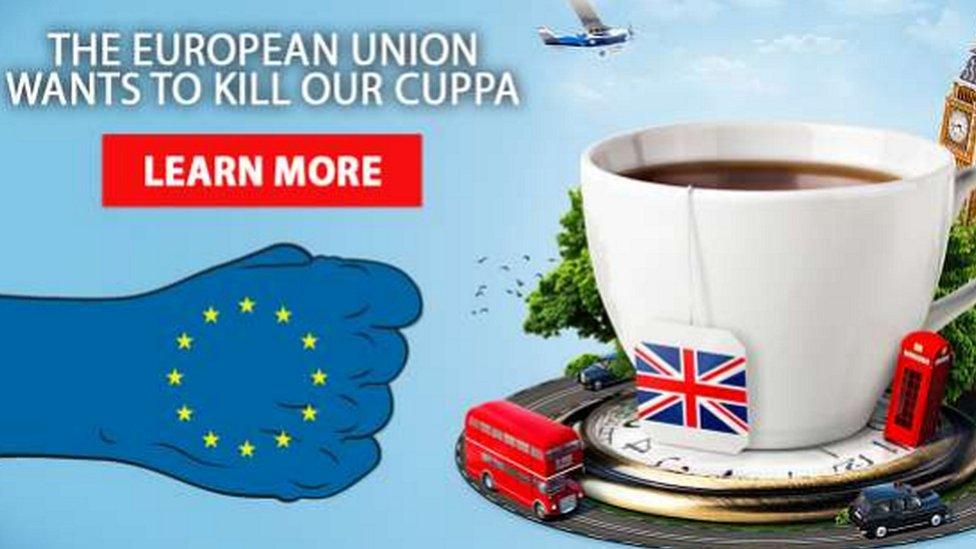
Polar bears were also recruited to the cause:
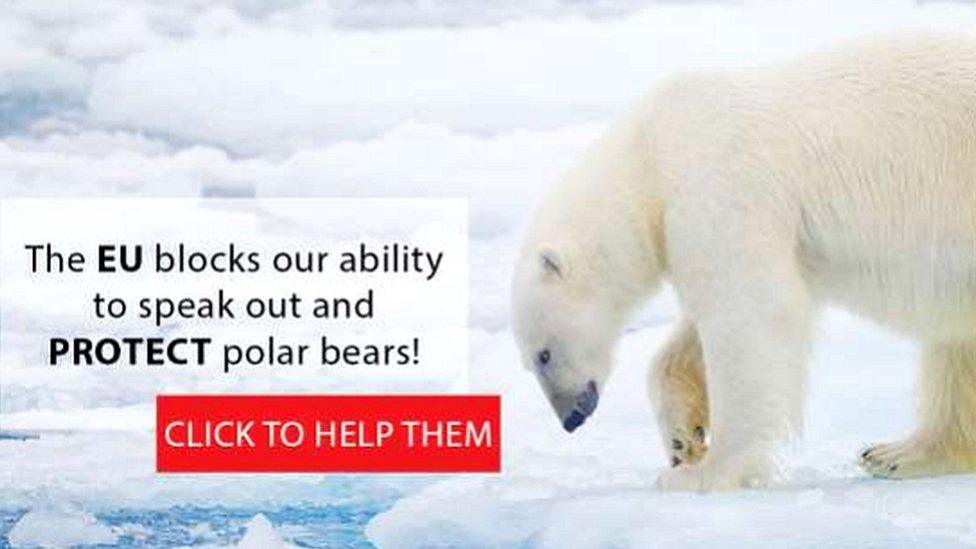
The adverts contained in the Facebook data set were seen more than 169 million times in total.
The BeLeave messages were more closely directed at younger voters, promising a "brighter future" if the UK could stop "EU regulators keeping us in the past" and accusing Brussels of regulating ride-sharing apps such as Uber and enforcing quotas on data streaming.
Data provided by Facebook suggests some of the most seen images were produced by BeLeave. This image was displayed on the screens of target audience members more than five million times:
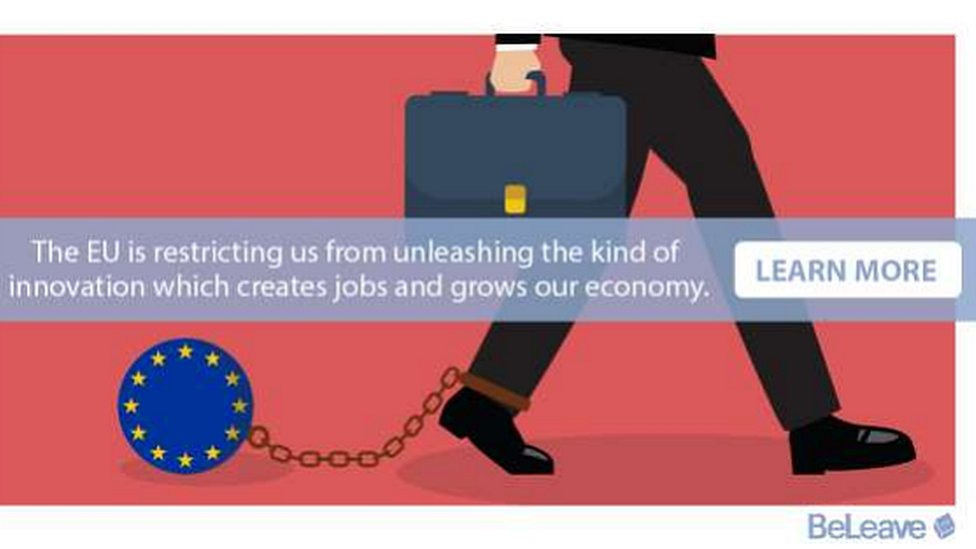
Older voters tended to be treated to claims about how much money the UK was sending to the EU. More than 140 ads made reference to the controversial claim that £350m a week sent to the EU could be spent on the NHS instead:
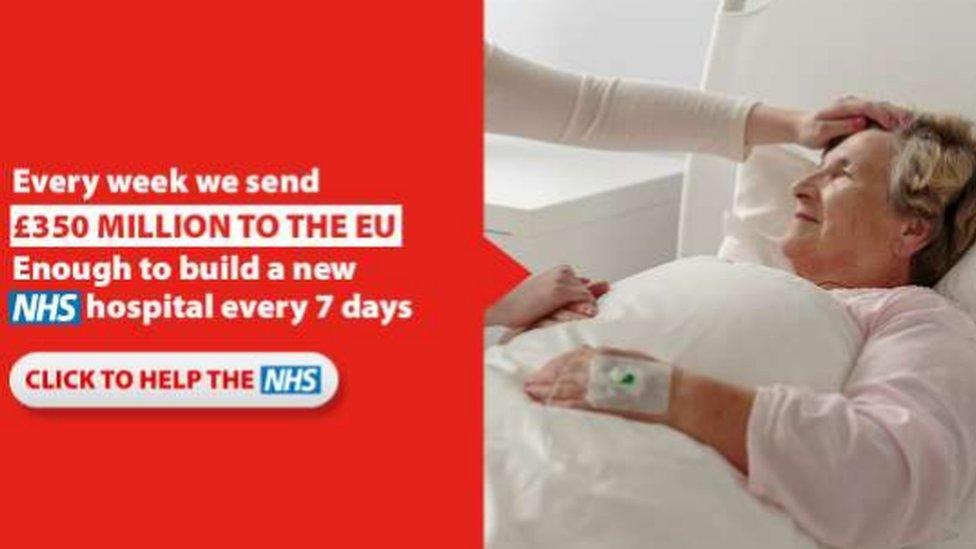
Alternative uses for the £350m included schools and flood defences:

Vote Leave made the most of then US President Barack Obama's intervention in the referendum campaign, when he said the UK would be at the "back of the queue" for trade deals.
This ad was heavily targeted at older voters, with a reach of up to 25% among woman aged over 65 and 23% of men in that age group targeted by one version of it (as with many of the ads, the accompanying text was tweaked and refined from a basic "parent" ad):
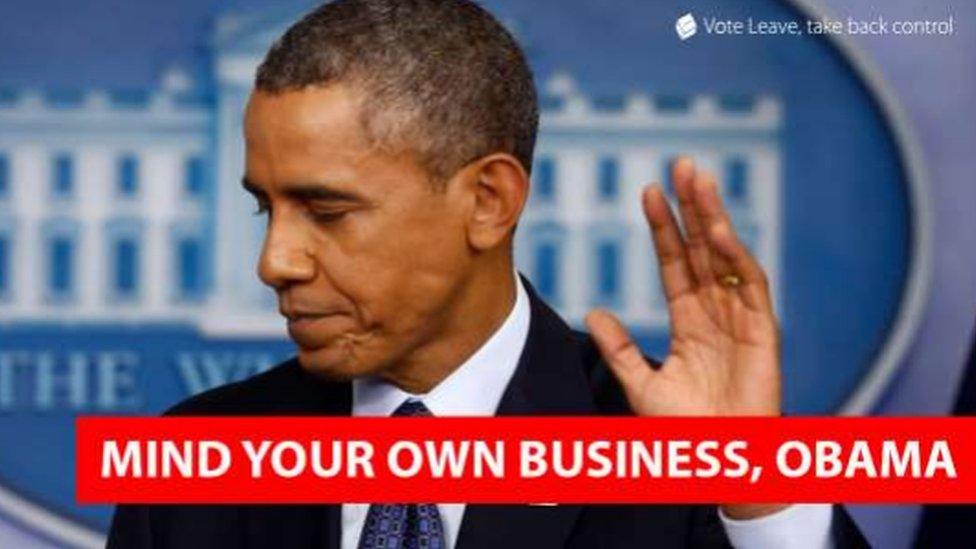
Immigration was another common theme, with one ad appearing to suggest the entire Turkish population was headed for the UK:
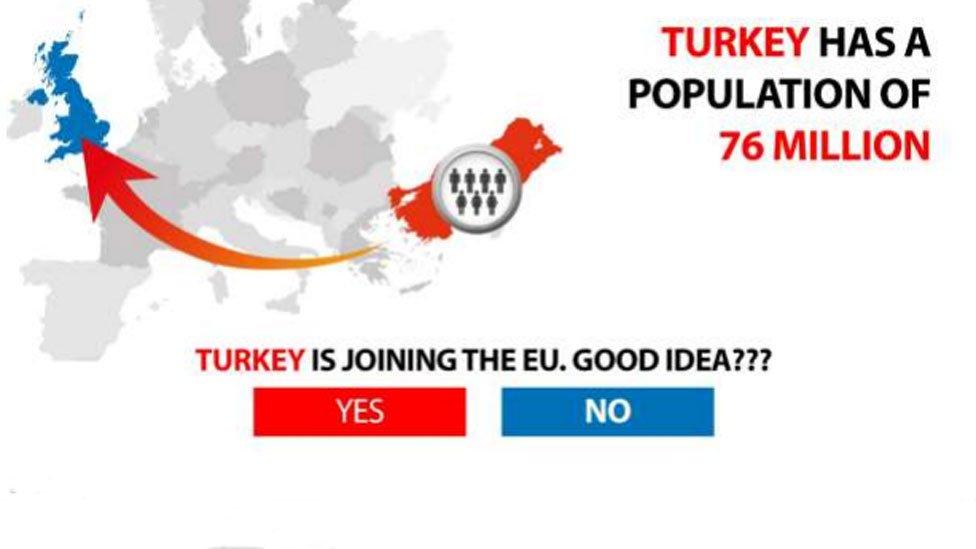
Boris Johnson was the only politician to be pictured in the ads:
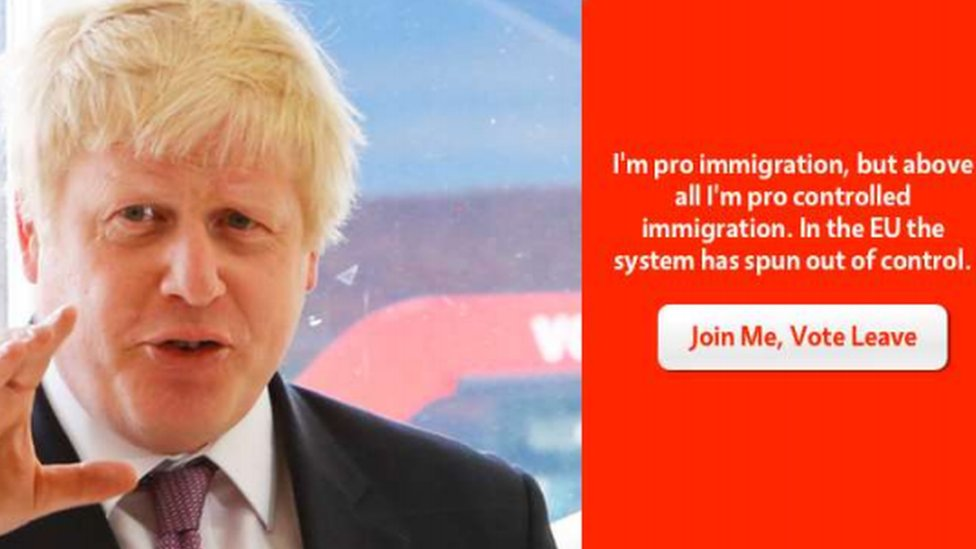
Apart from one featuring Jeremy Corbyn, which was targeted at younger voters and accompanied by an old quote from the Labour leader: "The EU takes away from national parliaments the power to set economic policy and hands it over to an unelected set of bankers."
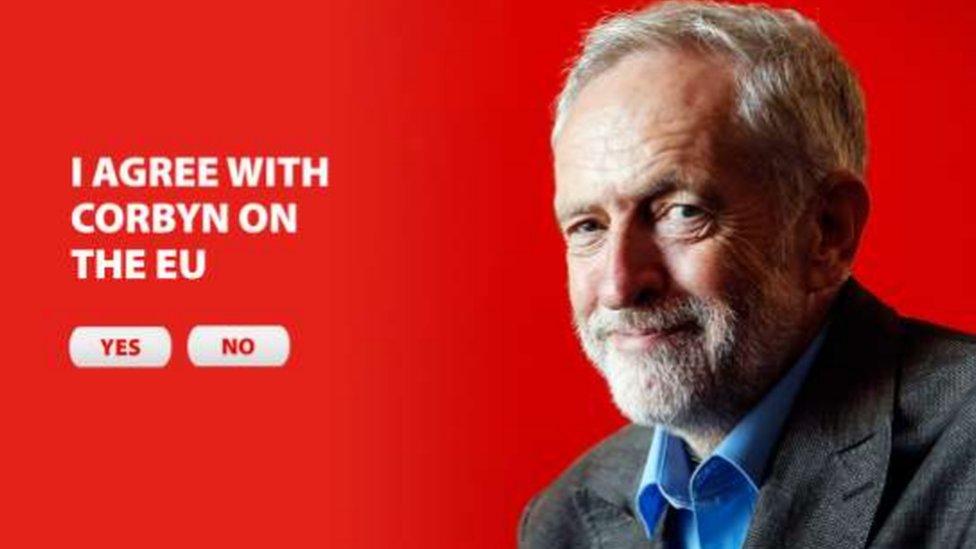
Northern Ireland's Democratic Unionist Party spent £32,750.73 with AIQ on pro-Brexit Facebook ads. Only 16 of the ads were delivered to users in Northern Ireland, according to the Facebook data. The remaining 24 were primarily seen by people in England.
The 24 adverts, seen at least 1.96 million times - and potentially as many as 4.2 million times - were all posted in the final three days of the EU referendum campaign.
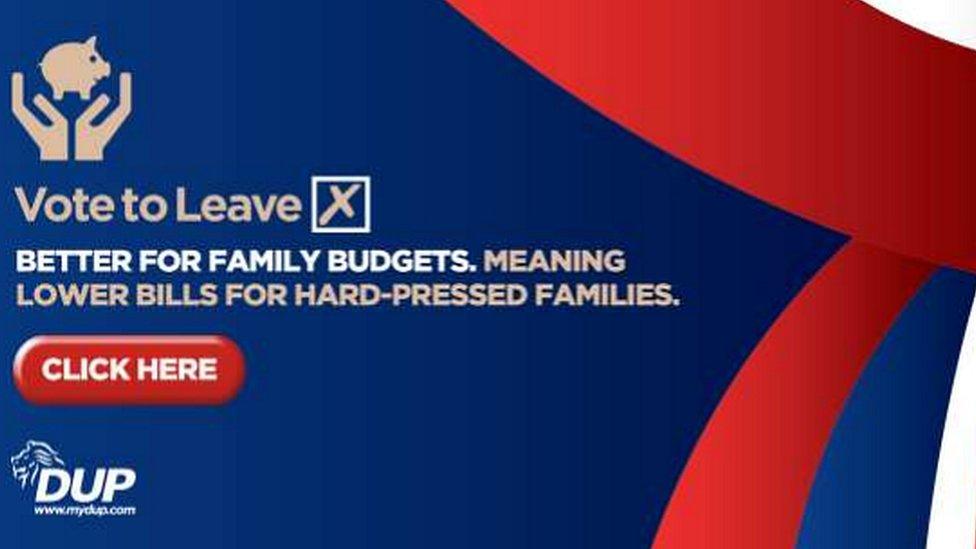
Early on in the campaign, Vote Leave launched a giant data harvesting exercise through a competition to win £50m if you could correctly guess the result of all 51 games in the 2016 European football championship.

The odds of winning the contest - which Vote Leave funded through an insurance policy - were calculated at one in 5,000,000,000,000,000,000,000.
It was described by one Vote Leave insider at the time as a potential "game changer" because it would allow it to gather the contact details of thousands of potential voters, many of whom would not normally be interested in the referendum.
The campaign recruited former England cricketer Sir Ian Botham to promote the contest:
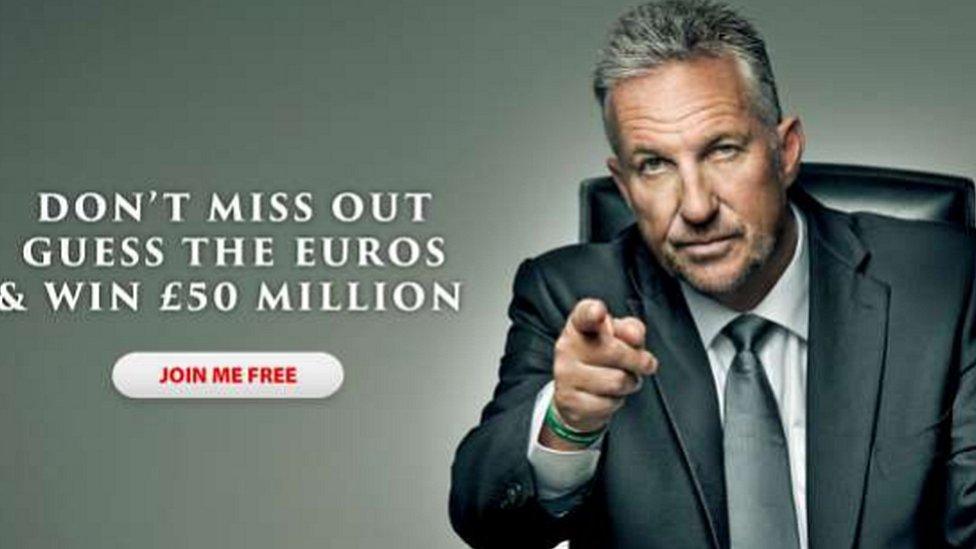
A separate group called Veterans for Britain had refused permission for its ads to be passed on, said Facebook.
The Culture Media and Sport Committee is expected shortly to publish interim findings from its inquiry into fake news, which has taken evidence from whistleblower Christopher Wylie and technology company bosses as well as representatives of the separate Leave.EU campaign.
Correction 27 July 2018: An earlier version of this story said some ads were seen by fewer than 1,000 people, according to the Facebook data, and this was an example of "micro-targeting". But former Vote Leave chief, Matthew Elliott, said the ads never ran, so we removed that reference.